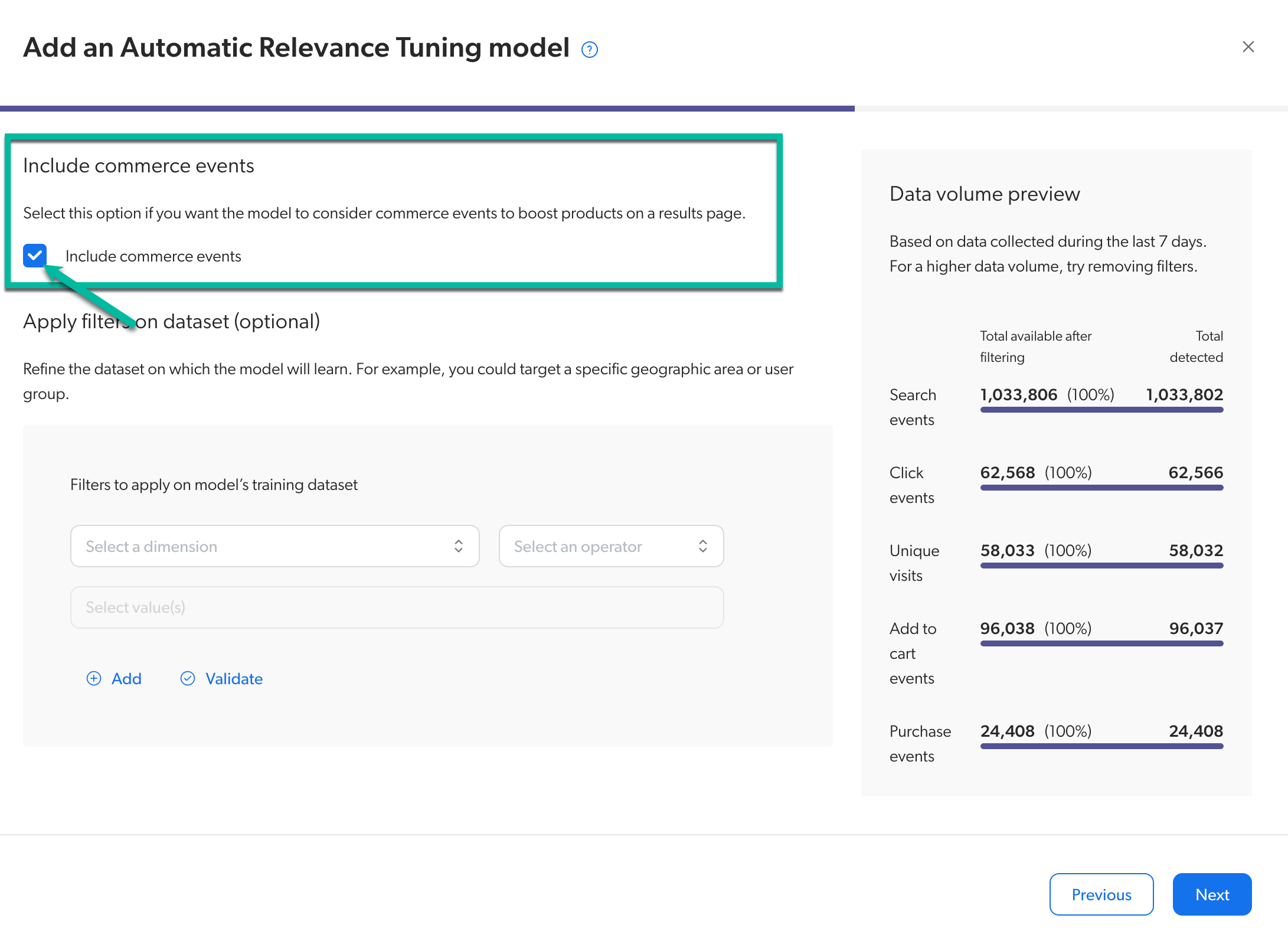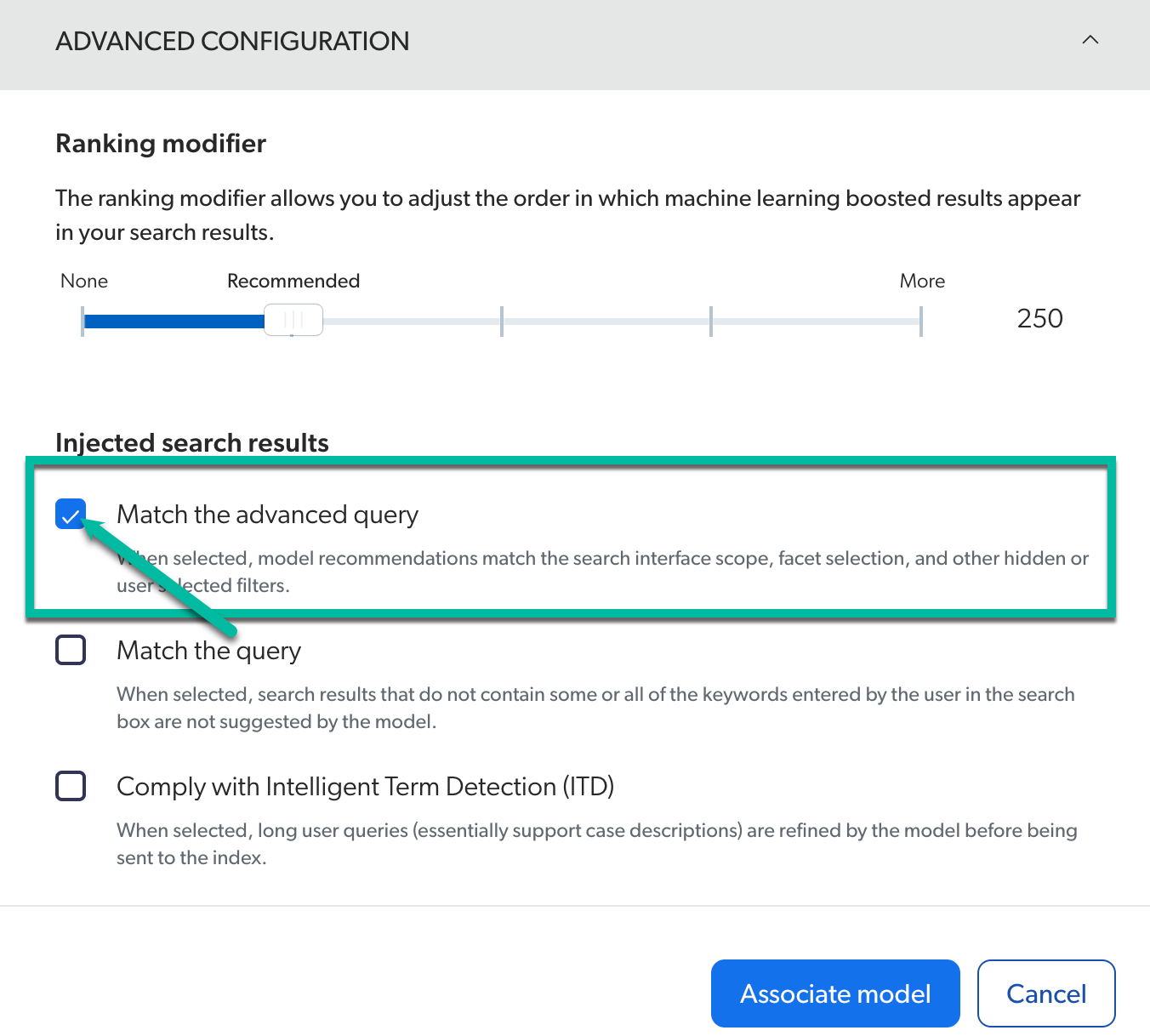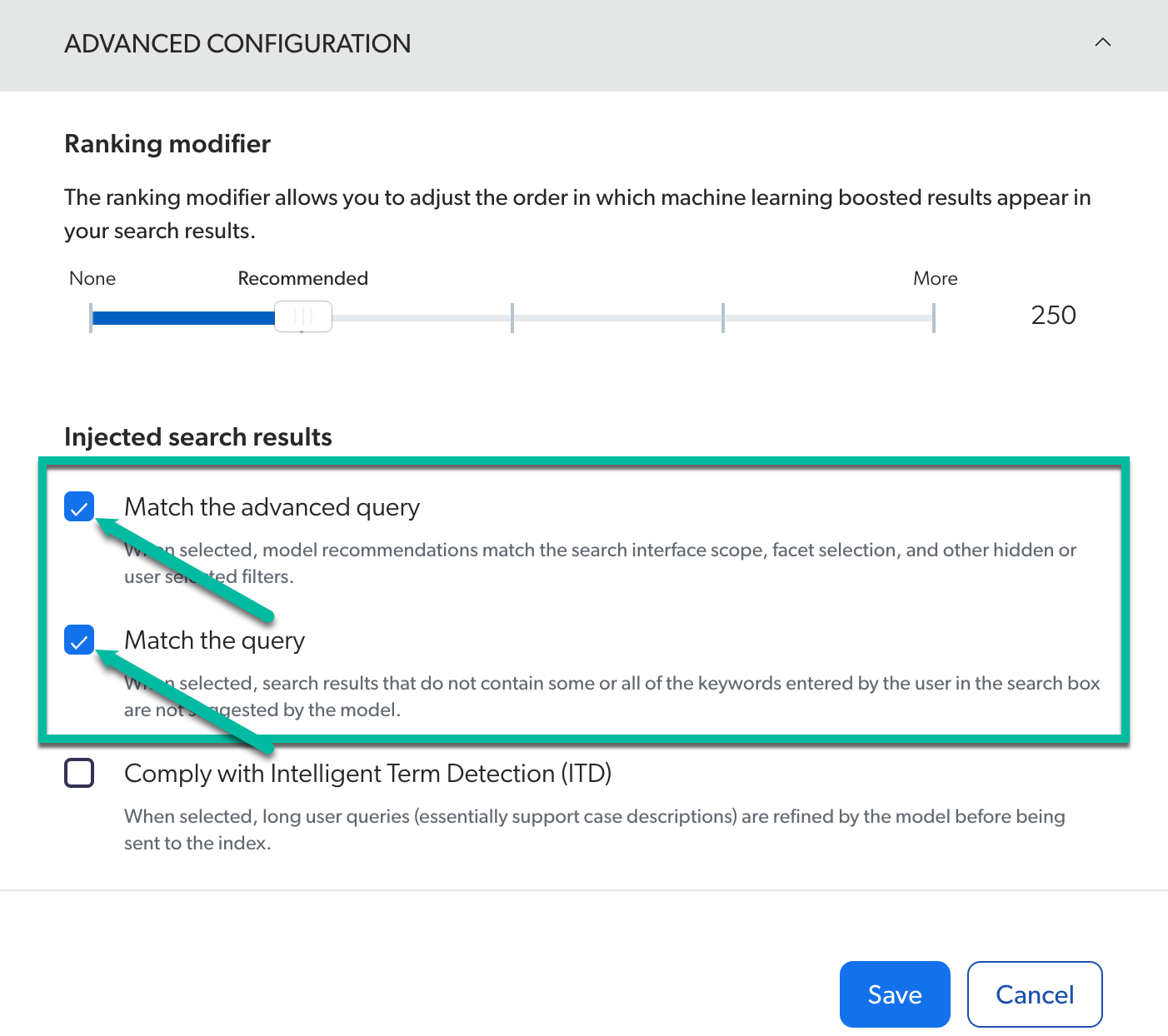About Automatic Relevance Tuning (ART) for Coveo for Commerce
About Automatic Relevance Tuning (ART) for Coveo for Commerce
In the context of Coveo for Commerce, Coveo Machine Learning (Coveo ML) Automatic Relevance Tuning (ART) models improve the ranking of products presented on listing pages and search results.
In more details, ART learns from user interactions like clicks, add-to-cart, and purchases to automatically adjust the ranking of products in search results and listing pages. ART uses machine learning to predict the relevance of each product for a given query and user context, and then adjusts the ranking of products accordingly.
When configuring ART in a Coveo for Commerce scenario, the models must undergo a specific configuration at both the model creation and model association levels.
For more information on ART models outside of the Coveo for Commerce context, see About Automatic Relevance Tuning (ART).
Model creation
When using an ART model for Coveo for Commerce, the model requires a specific configuration.
More specifically, you must:
-
In the case your Coveo organization powers multiple tracking IDs, you must configure learning filters
Enable the "Include commerce events" option
When creating an ART model for Coveo for Commerce, you must ensure that the Include commerce events option is enabled. This allows the model to not only learn from user interactions like clicks, but also from commerce events like add-to-cart and purchases.

Configure learning filters
When using ART models for a Coveo for Commerce Coveo organization that powers multiple tracking IDs, you must configure learning filters to ensure that the model only uses the data that’s relevant to the website on which it’s deployed.
For example, if your Coveo for Commerce organization powers multiple websites, you must configure learning filters to ensure that the model only learns from the data of the website on which it’s deployed.
To configure learning filters:
-
Once you’ve created your model, access the Models (platform-ca | platform-eu | platform-au) page.
-
Click the desired model, and then click More > Edit JSON in the Action bar.
-
In Edit a Model JSON Configuration, add the following
commonFilterobject to the JSON configuration:"commonFilter": "(c_context_website=@'<TRACKING-ID>')"Where you replace
<TRACKING-ID>with the tracking ID defined for the website on which you want to use the model. -
Click Save.
If you have a model that you want to use on a website for which the tracking ID is barca_sports_us, your JSON configuration should look like this:
{
"modelDisplayName": "Barca Sports US - ART",
"exportPeriod": "P3M",
"intervalTime": 1,
"intervalUnit": "WEEK",
"commonFilter": "(c_context_website=@'barca_sports_us')",
"exportOffset": "PT0S",
"extraConfig": {
"commerceSupport": {
"enabled": true
}
}
}Model association
When associating an ART model with a query pipeline that serves either a listing or search page, the association requires a specific configuration.
Listing page
When associating an ART model with a query pipeline that serves listing pages, ensure that you configure the following:
-
In the Advanced configuration section, select the Match the advanced query checkbox.

-
Once the association is done, edit the association’s JSON configuration to set the recommended
rankingModifierandmaxRecommendationsvalues:-
rankingModifier:500 -
maxRecommendations:50
[...] "rankingModifier": 500, "maxRecommendations": 50, [...] -
Search page
When associating an ART model with a query pipeline that serves search pages, in the Advanced configuration section, ensure that both the Match the advanced query and Match the query checkboxes are selected.
